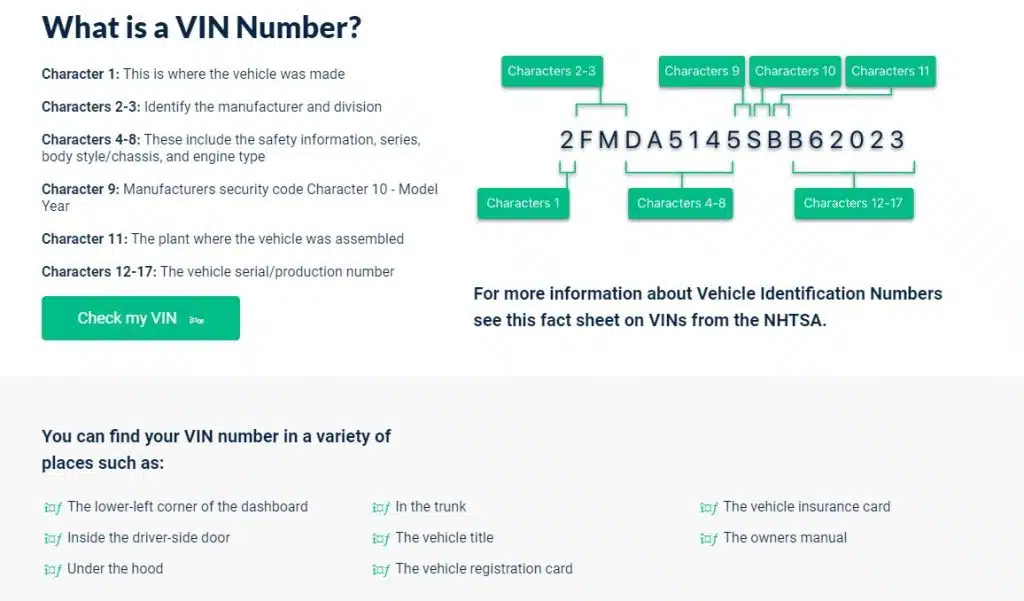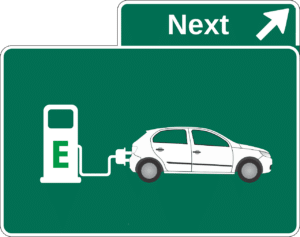What if my VIN Number is Wrong
The VIN number on your vehicle can provide you with relevant information about your car’s manufacturing. This number contains 17 alpha and numeric digits that can be divided into sections and reveal information about your car. Many people conduct a VIN search on their vehicle in addition to the VIN history report to determine if their car is in all original condition.
What if Your VIN Isn’t 17 Digits?
There are only two reasons your VIN number is less than 17 digits. The first is that the vehicle was manufactured before 1981. The National Highway Traffic Safety Administration (NHTSA) requires the 17-digit alphanumeric sequence in all vehicles manufactured from 1981 forward.
The second reason that the VIN may not contain 17 digits is that the VIN does not belong to the vehicle, has been altered, or is fake.
Look For Foreign Characters
If you get an “Invalid VIN” response when researching the number, check for the following letters: I, Q, and O. The NHTSA has deemed these as “foreign characters” and prohibited their use. If you have entered any of these in as letters, try reentering them using the number one and zero instead.
You are Getting Faulty Vehicle Data Provider Information
Another common reason a VIN comes up as invalid is that the VIN research engine you are using is limited in the types of vehicles they can check. If you are trying to verify a VIN on a foreign sports car and the search engine you are using only scans American passenger cars; you will get an invalid response.
When researching a VIN for manufacturer information, ensure that the database includes the type of vehicle you are researching.
What if it Failed Checksum Test?
The NHTSA website has a page where you can check your VIN for accuracy by entering the ninth digit of the number into the site. If the VIN is correct, it will come up valid. If it fails the Checksum test, you may be dealing with a fraudulent VIN.
The Checksum test applies to all vehicles manufactured in the United States and Canada. If your vehicle was not manufactured in either of these countries, the Checksum test would not apply.
What if Your VIN Isn’t Specific?
Sometimes a VIN comes up as a general category instead of a vehicle’s exact make and model. This does not mean that the VIN is invalid. The company you use to decode the VIN may need more information to create a report for a specific model.

What to Do if Your VIN is Wrong
The NHTSA has stated that the manufacturer is the only entity authorized to change a vehicle’s VIN. If your VIN remains invalid, you are encouraged to contact the car manufacturer to fix the problem. It may be something as simple as a typo on the title, in which case a new title can be issued. If there are other problems, the manufacturer can recommend the necessary steps to correct the problem.
If your vehicle has mismatched VINs you can also report this to the manufacturer. However, this might indicate that significant body work was done to the vehicle and that major parts containing the VIN have been changed or replaced.
Why VINs Matter
The VIN is a very important tool that can help people make an informed decision when purchasing a used vehicle. You can research the VIN to find out manufacturing information about your vehicle and if it has any special features.
The VIN also tracks the vehicle once it has left the new car lot. Owners are notified of recalls through their VIN. If your vehicle has been recalled, it will show as an open recall on the VIN history until the repair is made.
Additionally, insurance companies use the VIN to document accidents, fires, flood damage, or when a car is considered totaled. This information will follow the car throughout every new owner. Based on this information, potential buyers of a used car can check the vehicle history and see if they still want to purchase the vehicle.
Many mechanics will also record repairs and regular maintenance on a vehicle using the VIN. Every time you register the vehicle, and if you change states, it will reflect in the VIN history.
Researching a vehicle’s VIN and having a VIN history report made on any car you are considering buying is an easy way to ensure you are buying a good used vehicle. If you find problems with the VIN or discrepancies in the numbers, you will know that moving on to another vehicle is probably a good idea.
When Purchasing a Vehicle
Always remember to run a VINsmart report on any used vehicle before purchasing. A VINsmart report runs a complete history on the vehicle including whether it has ever been reported as stolen, involved in a major accident, or listed as a totaled vehicle.
VINsmart reports will also give you a registration history and mileage at registration. It reports any significant incidents related to the vehicle, such as being involved in a fire or flood.
When purchasing a used vehicle, the best way to ensure you make a good purchase is to know the vehicle’s complete history.






